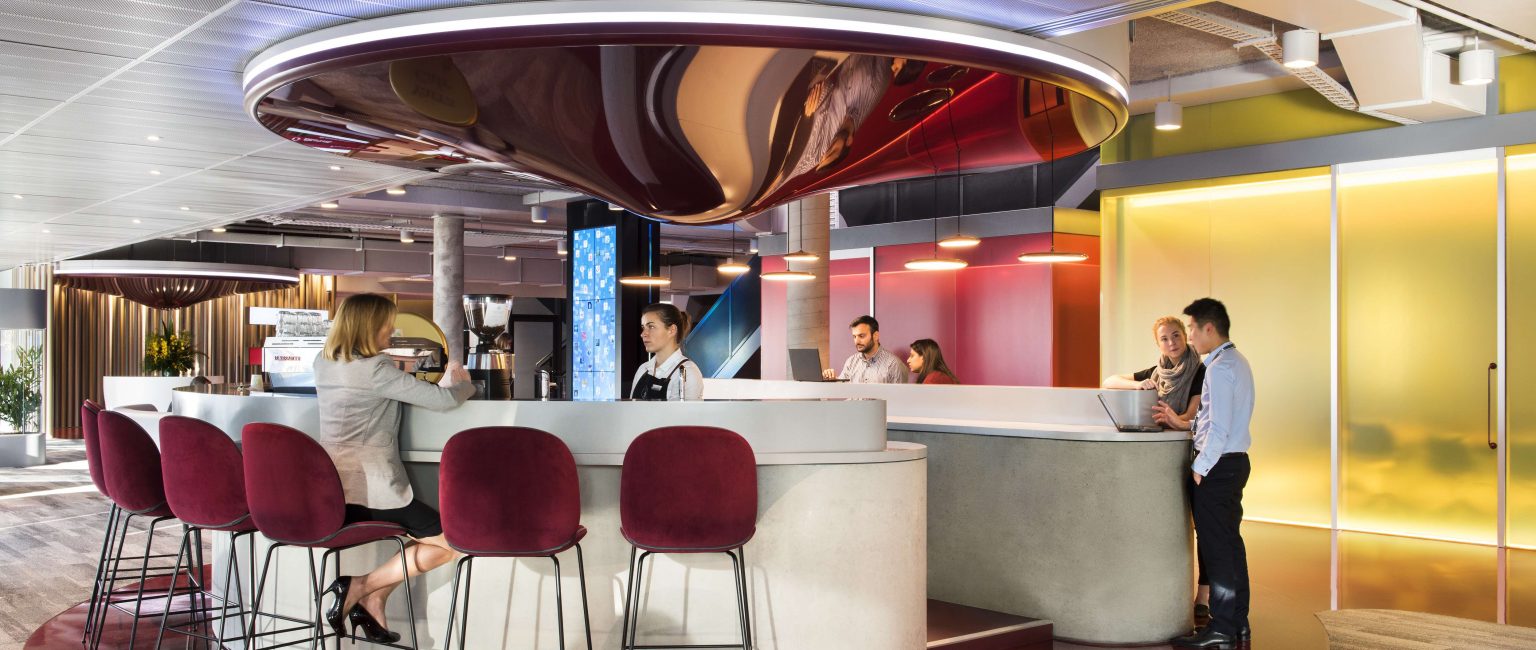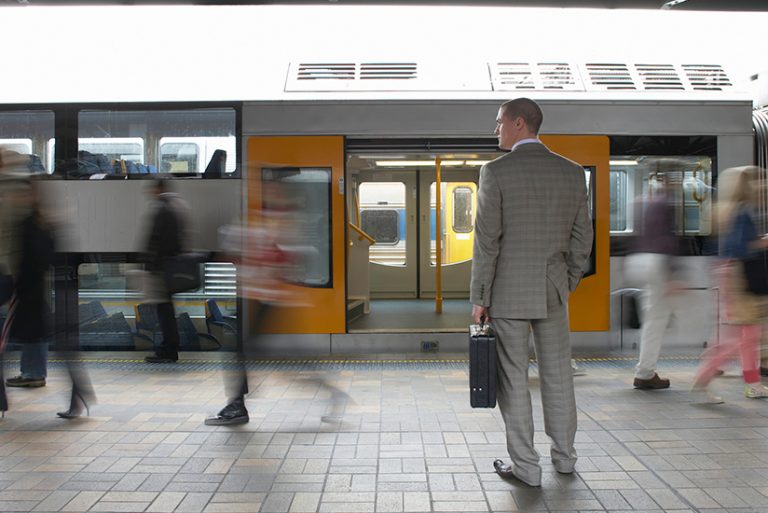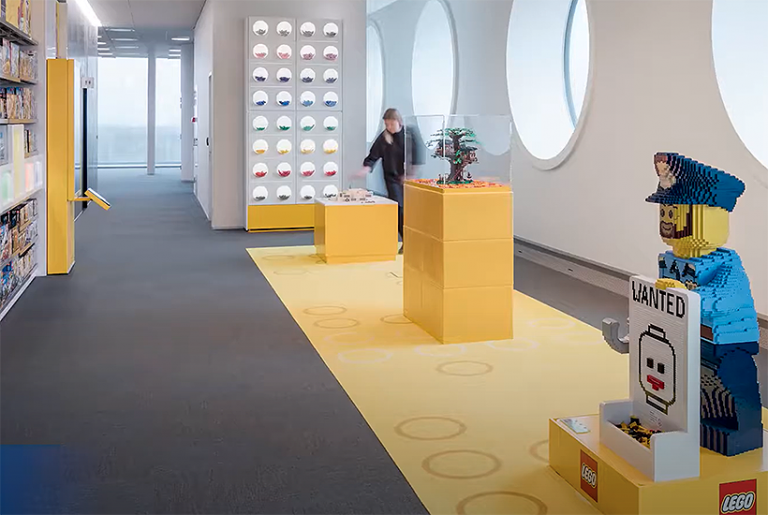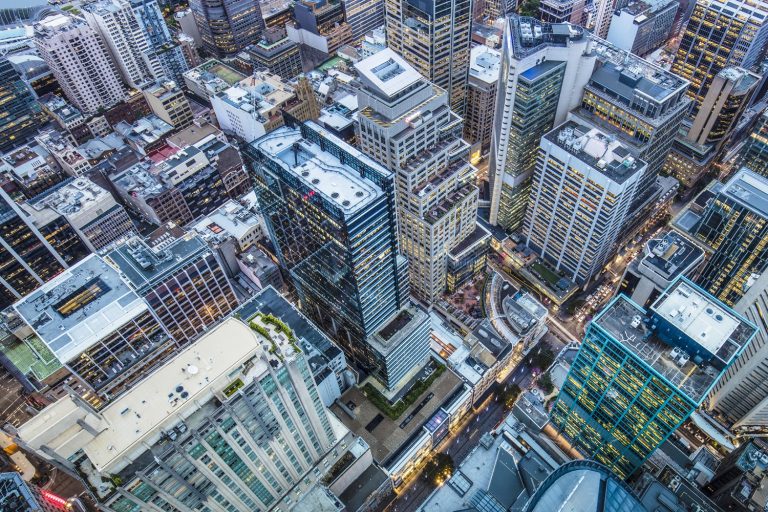Australia’s coolest workplaces seeking to lure staff back from home post-Covid

For employees of progressive companies, going to work is not what it used to be.
With healthy food on tap, cool hangout zones, meditation rooms, art workshops and yes, the obligatory ping pong table, employee satisfaction has moved to the fore of office design.
But in this new post-Covid era, companies are having to compete with home every single day.

Atlassian’s office in Sydney provides a cool setting for staff. Picture: Atlassian
Offices must be less corporate and more home-like, promote physical and mental health, offer a great vibe, and also be places conducive to quality work.
At Atlassian’s Sydney office on George Street, there are no rows of desks but colourful areas for collaboration, pods for quiet meetings, a well-stocked café, and the Club Tropicana bar, with ceilings and walls stuffed with plants.
For those needing to let off steam, there’s a recharge room with massage chairs plus a karaoke and gaming room.
In Seek’s striking new HQ in Cremorne in Melbourne, each floor provides a kitchen, social areas, and a wintergarden offering fresh air.
On the ground floor, operable walls turn a larger space into smaller, flexible ones, while a turfed terrace with city views hosts a range of team activities.

Seek’s new headquarters was designed to entice workers to the office in a post-Covid world. Picture: Seek
Meanwhile, PWC’s Sydney and Melbourne offices are divided into “client floors” and “people floors”, which provide a range of zones that bring people together, dotted with phone booths for confidential conversations.
There’s also ping pong, a mini-gym, mind-twisting games to play, and a cafe with free barista coffee.
PWC’s workplaces leader Peter Wheatley said the bar has been raised since the pandemic when it comes to workspaces.
“The concept of hybrid working is not new for us,” Mr Wheatley said. “However, we have to do things differently from the way it was before so that our people feel it’s worth coming into the office.”
Culture club
But design alone is not enough – it’s also about workplace culture.
Atlassians are served meals, snacks, and treats from the office kitchen and enjoy monthly social events like sports carnivals, art workshops, and open bar nights, as a virtual DJ spins tunes. Plus, people can bring their kids and pets into the office at any time.

It’s not just about providing a cool office, but building an appealing culture. Picture: PWC
At PWC, special activities include themed BBQs, cultural celebrations, or afternoon teas with expert guests.
If companies don’t “earn their workers’ commutes”, the dangers are two-fold, Mr Wheatley said.
First, their staff will miss out on career development and business opportunities. Secondly, they’ll go elsewhere.
“If you’re not doing it, other organisations will be, so you’ll risk losing your key talent.”

Companies need to earn their peoples’ commutes in a post-Covid world. Picture: PWC
What do workers want?
Covid-19 forced up to 40% of workers to experiment with working from home, according to the Productivity Commission.
Experts agree that remote working is likely to remain much higher than it was pre-pandemic, with workers now willing to change jobs or accept lower wages in order to maintain flexibility.
But most want to spend at least some time in the office, especially younger workers. The drivers? To collaborate with colleagues and enhance career prospects.
The Property Council has been tracking office occupancy in our capitals since June 2020.
In October 2022, office occupancy stood at 45% for Melbourne, 57% for Canberra, 58% for Sydney, 64% for Brisbane, 76% for Adelaide, and 78% for Perth.

The bar for workplace design has been raised. Picture: Seek
Andrea Roberts, head of office leasing at Knight Frank, said occupancy depends on the sector.
“Low occupancy numbers generally are being seen in government and large financial institutions, while small- to medium-size enterprises filling multi-tenanted office buildings have higher levels of occupancy,” Ms Roberts said.
Occupancy also depends on the day, with a pattern emerging of three days in the office for workers – typically Tuesday, Wednesday, and Thursday.
A flight to quality
Companies may prefer to have their employees back together in the office more often, but aware of the very tight labour market, they’re not forcing them.
Ken Morrison is the chief executive officer of the Property Council of Australia said the balance has tipped too far in favour of employees.
“It’s a funny situation where most CEOs would like their people in the office more than what they are, but they’re a bit reluctant to lean into that,” Mr Morrison said.
“So, from a real estate perspective, you’re seeing a real flight to quality. The workplace is now an area that has to attract staff to it.”

Non-traditional spaces that are flexible, collaboratively and inviting are becoming the norm. Picture: Atlassian
As a result, there’s been solid demand for premium-grade CBD office buildings in the six months to July 2022, with demand for all other grades lacklustre, Property Council data shows.
Meanwhile, organisations that have kept their spaces are repurposing them to adapt to new ways of working and connecting post-Covid.
This means creating space for people to work collaboratively and socialise while also carving out quiet spaces for Zoom meetings.
Ms Roberts said the post-Covid world is revealing “more enticing fit outs”.
“We’re seeing Zoom rooms, podcast rooms, and multi-function spaces such as town hall and training areas. They’re places to bring people together.
“Even single-floor tenancies are considering multiple options such as collaboration spaces and couches for team meetings instead of meeting rooms.”

A whole host of cool features are popping up. Picture: PWC
Opportunities for smaller businesses
Not all companies are still investing in CBD office space.
With soaring commercial rents as a result of interest rate rises combined with a hybrid workforce that doesn’t require the real estate, some companies are trying to reduce their costs by reducing city footprints, with others pulling out altogether.
Office vacancy rates in Australia were up slightly from 12.1% to 12.9% over the six months to July 2022, according to Property Council data, which was partly due to new office buildings coming onto the market.
At the same time, tenant demand across the country’s CBDs lifted an average of 0.5% between January 2022 and July 2022.

Workplace design has been transformed by the pandemic. Picture: Seek
Tony Massaro, partner of integrated infrastructure and real estate advisory at PWC, said as some firms exit the CBD, a new wave of businesses are ready to jump in.
“Companies that have downsized have allowed for fringe CBD businesses – maybe second-tier accounting firms, small family businesses – to claim a city office so they too can start to earn their peoples’ commutes.
“This has the potential to create communities that revitalise the city, sparking new collaborations and fresh energy.”
Ms Roberts added there is “significant sub-lease space available from large organisations”, particularly in Sydney and Melbourne.
But she encouraged emerging businesses trying to determine how much CBD space they need to seek flexible terms.
“The approach to flexibility in lease terms and premise size is so important in the real estate transaction as we navigate through the post-Covid return to work.”
CBDs will adapt
The Productivity Commission said while demand for office space in the city may not be what it once was, CBDs will remain “attractive hubs of economic activity”.
It argued companies want to maintain their CBD offices due to the central location, accessibility, proximity to other organisations, plus their workers’ desire for that “city fix”.

Experts say CBDs can survive and thrive in a post-Covid world. Picture: Getty
Disruption always leads to innovation, and cities and workspaces will adapt and thrive, Mr Morrison predicted.
“The city provides amenities for your people and is where your peers, your clients and your competitors are.
“Corporate Australia has realised that it wants this space.
“They just want different space, they want quality space, and they’re reorganising that space.”







